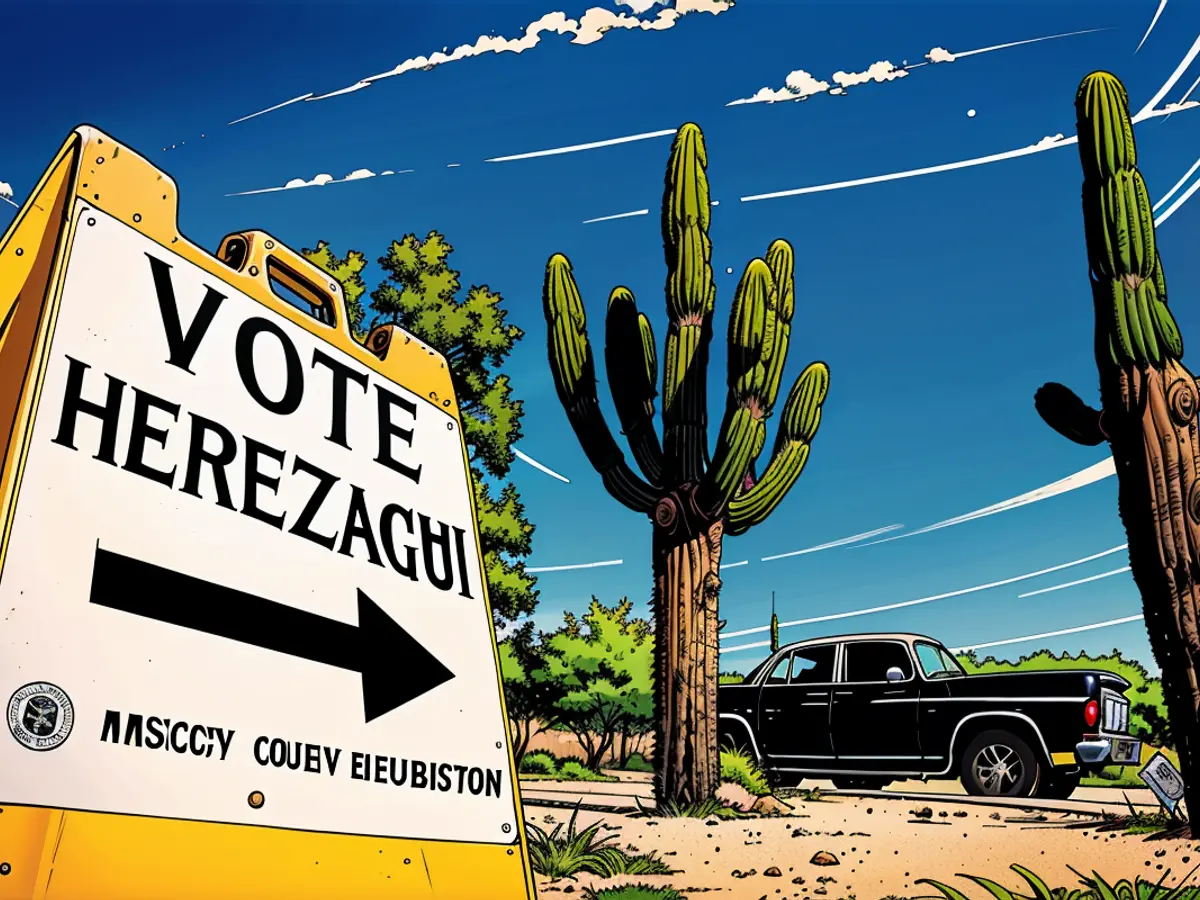Trump associates confront critical hearing in Arizona's election subversion trial
This marks the initial high-stakes hearing since a grand jury indicted fake electors from Arizona, along with several allies of former President Trump, such as Rudy Giuliani, Mark Meadows, and Christina Bobb, back in the start of the year. Lawyers for these Trump associates claim that prosecutors are trying to enforce severe penalties to force the defendants into cooperating.
Arizona's attorney general has accused the Trump allies of committing multiple felonies during a single occasion, a designation in state law that increases the likelihood of jail time instead of lighter penalties for first-time offenders.
During the hearing, scheduled for this Monday, Judge Bruce Cohen, appointed by ex-Gov. Janet Napolitano, will listen to arguments from both sides. The judge's decision will significantly impact the direction of the case going forward.
Prosecutors will counter allegations that they failed to provide substantial evidence connecting some defendants to an alleged conspiracy during secret grand jury proceedings.
The key hearing takes place shortly after Trump, who has not been charged in this Arizona case but is referred to as "unindicted co-conspirator 1" in court documents, held a rally in the crucial swing state for his 2024 presidential campaign.
Trump has escaped standing trial in both criminal cases where he was accused of attempting to undermine the 2020 election, but the Arizona hearing highlights that many of those who attempted to keep Trump in power still face substantial legal risks.
Most of the Arizona grand jury members who indicted the 18 Trump allies for their roles in trying to overturn the 2020 election expressed a desire to charge the former president as well.
According to court documents, the state's lead prosecutor appealed to the grand jury not to indict Trump, presenting a PowerPoint presentation to explain his reasoning.
Trump has been charged at the federal level for his attempts to reverse Joe Biden's legitimate 2020 election victory by special counsel Jack Smith and in Georgia by Fulton County District Attorney Fani Willis.
Prosecutors will cite their decision not to indict Trump during the hearing to refute claims by defense attorneys that the case is politically motivated and should be dismissed.
While Trump has not been charged in the Arizona election subversion case, the investigation remains ongoing, and prosecutors have not ruled out potentially indicting more individuals, including Trump, if evidence arises to support such an action, sources confirm to CNN.
For the time being, Arizona prosecutors are pressing ahead with their case against the 18 accused individuals and contemplating a trial date in early 2025.
Arizona prosecutors achieved their first success this month when Jenna Ellis, a former campaign lawyer for Trump's 2020 election, agreed to cooperate in exchange for dropped charges against her.
Ellis is expected to testify against other defendants in the criminal case as part of her agreement. She was initially charged with various felonies related to her alleged involvement in the plan to submit fake slates of electors in an attempt to overturn the 2020 election results.
Another of the Arizona fake electors similarly reached a plea deal with prosecutors this month. Loraine Pellegrino, who signed the fraudulent document at the center of the state attorney general's case, agreed to plead guilty to the false document charge and had her remaining charges dropped.
As with the other accused individuals charged in the Arizona case, Pellegrino was facing multiple felonies for her alleged role in the alleged conspiracy.
The other defendants in the Arizona case, including several prominent Republican party members and former White House aide Boris Epshteyn, have pleaded not guilty.
Upcoming hearing for Meadows
Separately, lawyers for Mark Meadows, Trump's former chief of staff, argue that the Arizona indictment pertains to Meadows' official duties as Trump's last chief of staff and therefore, his case should be moved to federal court.
In a federal court filing, they contend that Meadows' alleged actions, such as receiving and responding to messages from individuals attempting to influence President Trump or update Meadows about the strategies and progress of legal efforts by the President's campaign, fall under the Supremacy Clause of the U.S. Constitution and are protected from state court adjudication.
A hearing has been scheduled for September 5, with Judge John Tuchi overseeing the proceedings. Tuchi was a nominee of former President Barack Obama.
Meadows has encountered legal challenges before. Last year, he filed a similar appeal in Georgia after being indicted on similar 2020 election subversion state charges.
The upcoming hearing for Mark Meadows is scheduled for September 5, with Judge John Tuchi overseeing the proceedings, as his legal team argues that his case should be moved to federal court due to his role as Trump's last chief of staff.
Politically charged trials involving Trump associates continue to make headlines, with the Arizona hearing focusing on allegations of election subversion and the federal court potentially overseeing Meadows' case due to his official duties.








